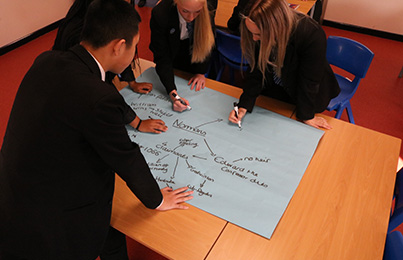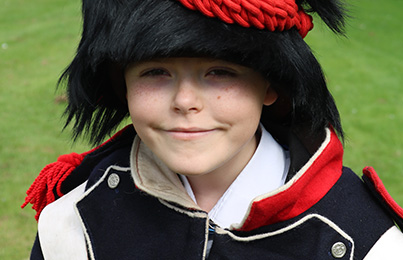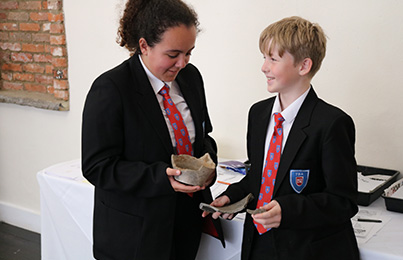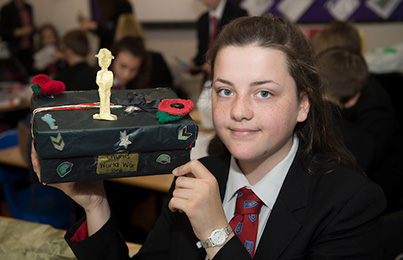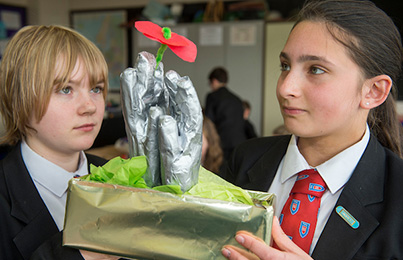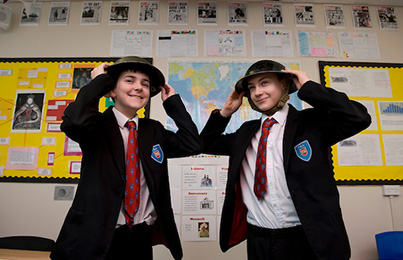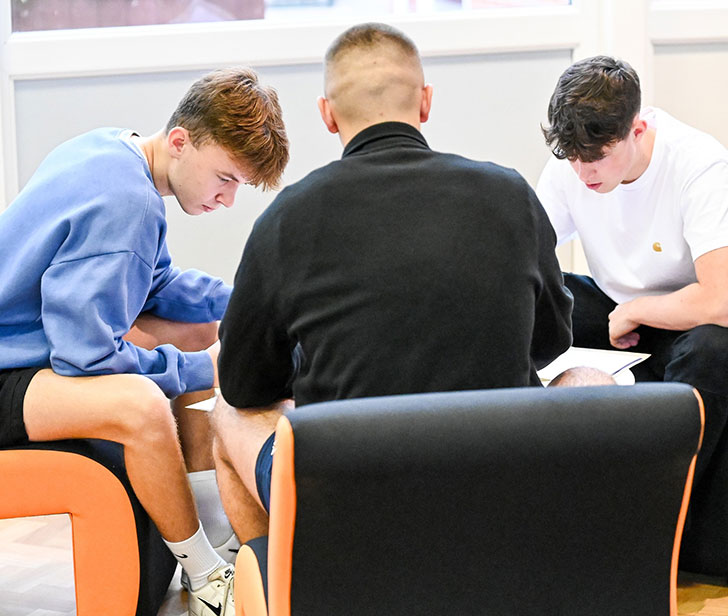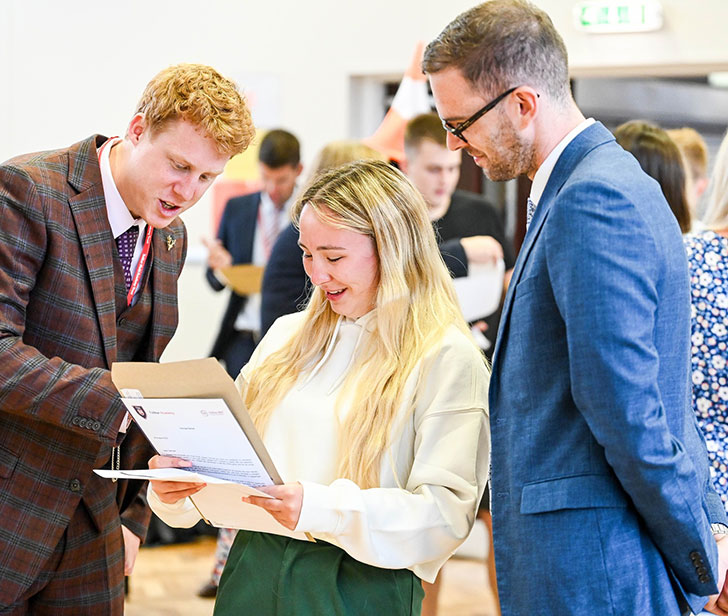History
KS3
The History Curriculum promotes the understanding of our shared past and prepares students for entry into modern Britain. We intend to develop students understanding of the wider world and situations that have led to our current political, cultural and economic climate. We want to give students a broad understanding of History through ancient time to the 20th century so that all students leave us with a deep understanding of who we are and how we got to where we are today. Key to this will be giving our students a meaningful understanding of how historians form opinions of the past and giving them all the necessary tools to create their own.
In History we want to broaden the horizons of our students and look at a range of other cultures and their impact on societies. We aim to tackle complex issues such as the role of race and gender and topics such as migration and war. We intend to deliver topics that are appropriate for each key stage and for students across all stages of their History education to develop an understanding of how to contribute to society today. We intend for students to gain a good understanding of a range of issues that will allow them to become active and engaged members of modern Britain. We wish to introduce them to key British ideas such as democracy, tolerance and empathy.
We will do this through the study of a range of governments from Norman and Roman England through to Hitler’s Germany. In addition, we also wish to impart to our students a range of skills that will help them in the wider world and the transition to the next key stage of their education. These include being able to study multiple viewpoints, from eminent historians, before making a considered judgement and being able think critically about the information they are presented with. In a world where learners are gaining more and more information from unreliable sources we believe this is a vital skill for their active engagement with British Society. We also wish to create learners who are able to apply these skills independently and with confidence both in the classroom and ultimately when leaving us in KS4 or KS5.
At Tollbar Academy we will consistently revisit the following themes:
Belief Systems: Both religious and ideological beliefs, how thesedrive change, conflict and underpin history from ancient times to the present.
Monarchy and Power: How the role of those in power has changed, the causation and consequence of decisions made by rulers and ruled.
Conflict and Change: How revolution, war and social conflict has driven change in both Britain and the wider world. How Similarity and difference between conflicts has brought about social reform.
Local Significance:b> In depth knowledge of the history of Grimsby, Lincolnshire and Northern England. Giving students an awareness of the significance of where they live.
Ordinary Lives: Social history with a focus on the individual level of human lives. An understanding of how events and change impact societies throughout history.
Empire, Colonisation and Migration: The role of Britain’s colonial history, the contribution of Britain to world history. Migration’s significance in driving the expansion of ideas, beliefs and peoples.
Year 7
- In Year 7 our curriculum establishes a key foundation for students as they progress through their study of History. Our very first topic will give students an insight into how Historians work and these skills will be practiced and embedded as they move through the year.
- Year 7 will also explore a number of key ‘themes’ such as ‘Who are the British? and the relationship between the monarchy and their people across British History. Students will learn how the work of significant individuals has the potential to dramatically alter the past through in depth studies of peoples like Eleanor of Aquitaine, Oliver Cromwell, Alfred the Great and Havelok the Dane.
- Our locality is very important to our History curriculum in all key stages. In Year 7 learners will explore the foundation of Grimsby as a Viking longphort and how medieval rulers changed Lincolnshire. We give our students a sense of the importance of their local community both in the past and present.
- The curriculum introduces students to a range of historical interpretations from eminent historians such as Lucy Wolsey and Richard Rex and gives the students the tools to effectively evaluate their views.
- Year 7 explores a number of interesting and engaging fertile questions. Students will engage with these complex issues throughout the curriculum, building to a synoptic focus on monarchy and power throughout British History which will push learners to reflect upon and revisit the curriculum as a whole.
Year 8
- Our Year 8 curriculum builds upon the key concepts established throughout Year 7 and students will continue to explore and analyse these as they approach a new range of enquiry questions.
- Year 8 will explore both Britain and the wider world as students are exposed to new cultures and identities as they follow a number of narratives throughout History. From the beginning looking at Pre-Colonial Africa through to Slavery, Empire and the development of modern Russia and the current Ukrainian Conflict.
- Our locality remains highly important throughout Year 8. Studies of the First World War will focus on the famous Grimsby Chums and impacts on Grimsby and Lincolnshire will be analysed across all topics. The narrative of migration and multiculturalism will be explored in greater depth looking at both ‘forced’ and voluntary movements around Britain and the Empire and its role on creating modern Britain.
- By the end of Year 8 our students will have explored The British Empire, Transatlantic Slave Trade, Industrial Revolution, The Suffrage movement, The First World War and the development of modern Russia. They will have seen how revolutions have brought about change, how ‘ordinary’ people have challenged governments and ideological beliefs have developed as a result of Britain’s relationship with the world.
Year 9
- Year 9 is designed to continue students progression in their study of History and prepare them for the next key stages in their education. Driving Year 9 are questions on the rise of extremism and what happens if this remains unchecked through a study of Nazi Germany, building to Holocaust survivor talks for the students at the end of Year 9.
- The narrative of ordinary lives remains highly significant as students will assess if German people were coerced or consented to Nazi rule. Belief systems will give students a depth knowledge of extremist ideology of both the far right and far left to give our learners the faculty to challenge the growth of dangerous thought in their modern lives.
- Local significance remains at the forefront of what we cover, Grimsby during the Second World War is covered as is the impact of government policies on the town post 1945. Conflict as a driving force of change will be evaluated through studies ranging from the Cable Street Riots through to Brixton in the 1980s and the 2016 Brexit Referendum.
- Students leaving us in Year 9 will have left with a chronological understanding from pre-1066 Britain through to the 21st century, those choosing to continue History into key stage 4 will have a strong foundation in historical knowledge and skills which they can apply to GCSE without having to repeat content. They will end the Year addressing a the credibility of a challenging and engaging historical theory on whether we are at the ‘End of History’.
KS4
The KS4 History curriculum is designed to reinforce and build upon the skills embedded at KS3 whilst stretching and challenging our learners. The students will study a range of topics which will give them a greater understanding of the challenges facing us today, and equip them with the skills to meet these. The curriculum is designed to provide ongoing engagement with the local area such as the study of Grimsby as a Viking Longphort or Lincoln Castle and Cathedral and their purposes in Norman England. We aim to continue to promote the historical engagement students will have taken from KS3 whilst giving them a more developed understanding of multi-cultural Britain. KS4 History will teach students to think critically about information they are provided with through analysis of a range of historical interpretations.
Students will be given regular formative and summative assessment and the opportunity to study exemplar responses. Like KS3, we will encourage students to reflect and review their learning to promote independent study and prepare them for the next transition into further study or employment.
In GCSE History, students follow the AQA GCSE History curriculum, leading to a full GCSE qualification at the end of the course in Year 11. Students are assessed wholly via written examination, based on two examination papers:
- Paper 1: Understanding the Modern World
- Paper 2: Shaping the Nation
As part of their course, students will complete a depth study on Germany (1890-1945), a wider world depth study on Conflict and Tension (1918-1939), a thematic study of Migration, Multiculturalism and the British Empire, and a British depth study on Norman England (c1066-1100), including the study of a specified historical site.
